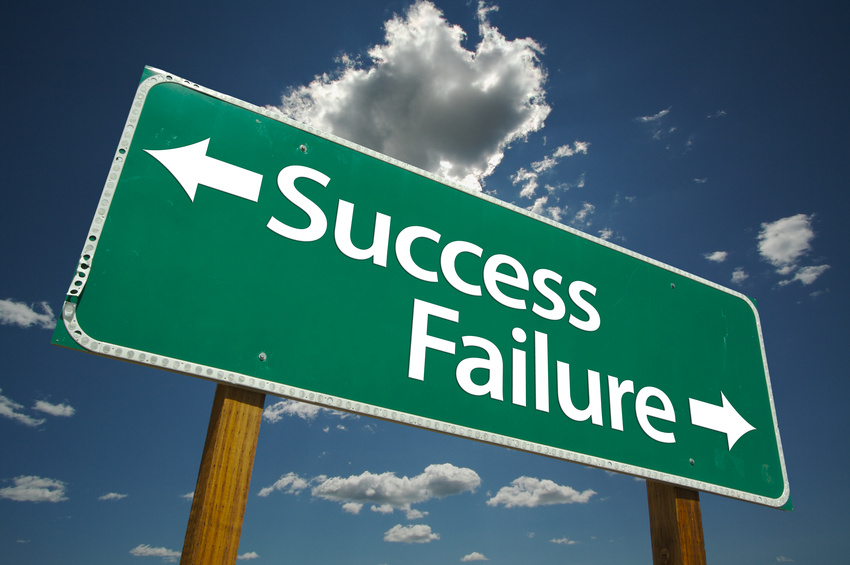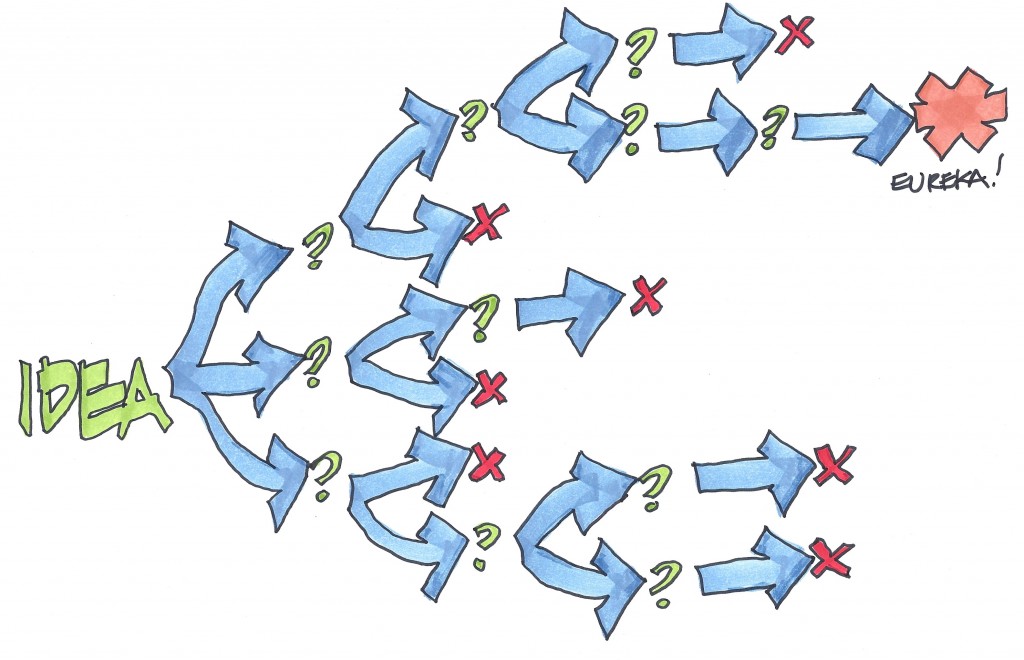A couple of weeks ago I wrote a post called “What is failure? What is success?“
As I went to publish the post, I searched for a graphic to go with it, and I was so struck by how the graphics I found showed success and failure as opposites — two things moving away from each other.
Here you can see what I mean:

Or this version:

Pretty much the same thing, right?
Here’s another one:
The problem I have with these graphics is that they defy logic. I guess we’re supposed to assume that at a key crossroads in our lives we have to make the “right” decision in order to succeed. If we don’t make that “right” decision, we’ll fail. And sure, I suppose there are some truly right and wrong answers, but particularly when it comes to something like “success”, which can have so many different relative definitions, how can there always be one clear answer?
As I discussed in my earlier article, Thomas Edison made endless numbers of attempts to perfect his lightbulb. Were those attempts “failures”? Sure, I suppose in some sense they are. But didn’t those “failures” ultimately lead him to success?
And doesn’t make these graphics inherently flawed?
When you think about it, showing success and failure existing in opposite spaces is a perfect example of a “fixed mindset” versus a “growth” mindset, like Carol Dweck writes about in her book, Mindset: The New Psychology of Success.*
Dweck says that a fixed mindset is a belief that “your qualities are fixed in stone” and creates “an urgency to prove yourself over and over.” This kind of thinking leads us to believe that we only have a certain amount of talent, intelligence or character and there’s nothing we can do to improve it — save possibly making the “right” choices.
This ties right into this black or white thinking of success and failure existing only as opposites.
The growth mindset on the other hand, is “the belief that your basic qualities are things you can cultivate through your efforts.” This means that “a person’s true potential is unknown (and unknowable); that it’s impossible to foresee what can be accomplished with years of passion, toil, and training.”
If we adopt more of a growth mindset about success, it seems to me, we want a graphic that looks something more like this:
Or even like this:
Your turn
What do you think?
I’d love to hear your thoughts in the comments on the blog.
Warmly,

You may also be interested in:
* Affiliate link



